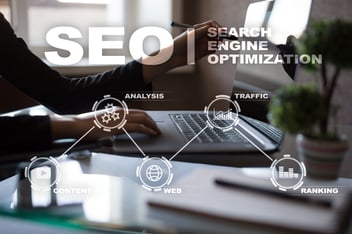Your website: it's beautiful, functional, and drives business to you every day. It also can be hiding something that you likely have never thought about, and it's harmful. Toxic Backlinks.
So, what is a backlink?
Simply put, a backlink is a link to your site from an external site that tells your users, and more importantly, Google that your content is important and should be referenced. The more backlinks you have coming to your site, the more authority, or visibility you have on certain subjects. This means more visits to your website and possibly more business as a result. What a great problem to have right? However, there is a darker side to backlinks that can actually harm your website. Let's explore...

Similar to a certification from a prestigious institution, high-authority, clean backlinks are what you should be getting. On the other side are low-quality, low-authority backlinks that aren't just annoying, but potentially harmful. Why?
They're often spammy, malicious, even illegal links that automatically seek out normal, perfectly performing websites to attach to. This process is usually automatic whereas a high-quality backlink takes effort to achieve. What makes a backlink toxic though?
- Low Trust Score: This means the referring domain's own backlinks are poor in nature themselves
- Text to HTML ratio: The more text and less HTML there are in relation to one another usually signals a low-quality backlink
- Mirror pages: Similar pages on multiple sites that come from the same domain are a sign of a link-building scheme, which goes against Google's Webmaster Guidelines.

What are the penalties for not addressing toxic backlinks?
Reduced page rank, or in the most serious cases, removal from indexing altogether.
Google introduced the Penguin algorithm almost a decade ago with the very intent of mitigating these issues, and if you're facing penalties they are applied based on your link profile automatically. In recent years though, penalties are applied manually by Google's team, at a rate of over 500k per month. The good news is you now have the ability to request a review, where before, there was no recourse.
Backlinks have an important role in how your users and Google view your website, and it's important to stay ahead of issues like these. We'll cover how to address toxic backlinks in another article, and if you have questions, please contact us.








